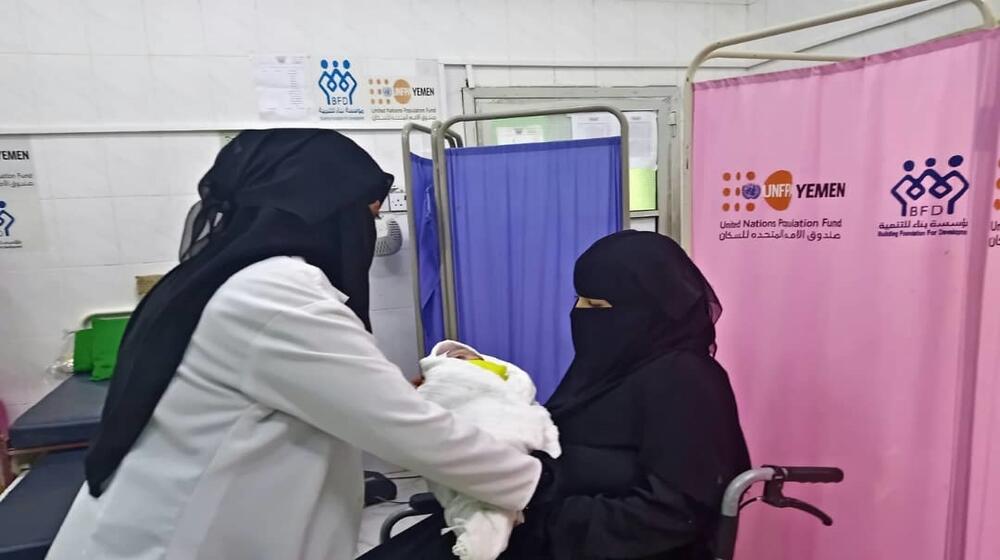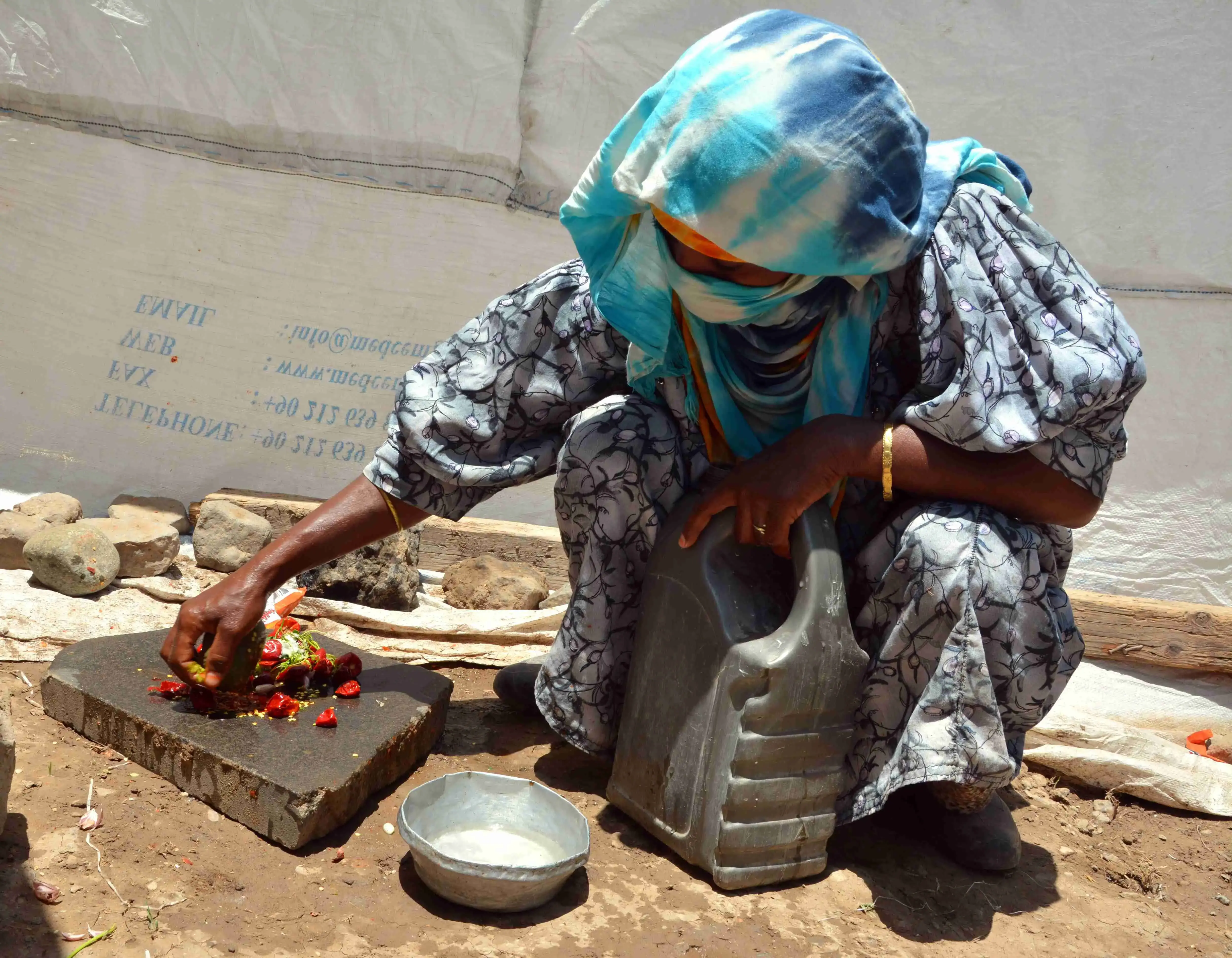DHAMAR GOVERNORATE and AL-MAHWIT GOVERNORATE, Yemen – On her way to the health centre to give birth, Hailah almost fell off the back of a borrowed motorbike – twice. A lack of oil has driven up high transportation costs, and the money her husband, Hamid, made in Saudi Arabia where he sought work, was meagre. That is how she ended up on the bike driven by her brother-in-law who eventually tied her to him to prevent her from falling. Traveling from a remote village in Dhamar Governorate, they bumped along poor roads for more than 20 kilometres. “I realized it was the end – there was no way for me and my child to survive,” Hailah, 30, recalled. “But I had to resist. I couldn’t be at home because of the great risk of severe bleeding or death.”
In nine years of marriage, Saba, 29, had lost two earlier pregnancies due to lack of obstetric care in her small village in Al-Mahwit Governorate that had no hospital or pharmacy and barely any clean drinking water. With the help of a UNFPA-supported midwife who diagnosed her condition and gave her maternal medicines – UNFPA is the sole provider of maternal medicines in the country – she was able to maintain this pregnancy.
But at seven months, Saba began exhibiting signs of fatigue. “I tried more than once to go to the hospital, which is more than 25 kilometres away, but I could not because of the lack of money,” she said. Near the end of her pregnancy, she started suffering from bleeding and severe pain: “What I was most afraid of was that many women in my village lost their lives or their newborns without health care or on the way to the nearest hospital.”
When Saba was about to give birth, her husband, Saeed, asked everyone in the village who owned a car to borrow it to take her to the hospital. “None of them were able to help me because of the severe shortage of fuel,” he said. “I went to the black market with all my savings and bought two gallons of gasoline at a very exorbitant price: each gallon cost more than 70 dollars.”
A health system on its knees
A woman dies from giving birth every two hours here. One in three women who would like to use family planning are unable to do so. Six out of 10 births take place without a skilled birth attendant.
Seven years of conflict has brought the health system in Yemen to its knees. Fifty per cent of health facilities are operational across the country. Only two out of 10 functional health facilities provide maternal and child health services.
In 2021, UNFPA supported 127 health facilities, but lack of funding is forcing UNFPA to close half of them by the end of the month, placing the lives of 1.3 million women in grave danger, including 17,000 women who could die from complications during childbirth. According to a recent report, some 1.3 million pregnant and lactating women are also acutely malnourished.
Of the $100 million UNFPA needs to provide reproductive health care and women’s protection services through the end of 2022, only $15 million has been received to date. UNFPA's reproductive health response in Yemen is supported with funding from the European Union, Canada, USAID Bureau for Humanitarian Assistance, the Republic of Korea and the Central Emergency Response Fund.
At the end of the journey, new beginnings
When Hailah arrived at UNFPA-supported Hadaka Health Centre with funding from the Republic of Korea, she was quickly transferred to the operating room.
“She reached us at the last minute. She and her baby were about to die,” her doctor said. “The operation was a success — her baby is in the incubator and she is in stable condition.” She added: “The free medical services that we provide are the only hope for women like Hailah. I can hardly imagine how many mothers and babies will die if these services are stopped."
Al-Khabt Hospital, where Saba immediately went from the emergency room to the operating room, is also supported by UNFPA with funding from the Republic of Korea. When Saeed took the doctor aside to explain they didn’t have any money, he was assured that everything – the Caesarean section, treatment, medicines – was free.
“It was my first time receiving obstetric care services,” said Saba, who had a baby boy. “I wish it was available before, and I wish all the women from my village can access these services and that these services continue.”
Hailah had a daughter she named Amal. “We almost lost its meaning in light of this cursed war that turned our lives into tragedy,” she said.
But they didn’t lose the baby, or what her name means: “hope.”




